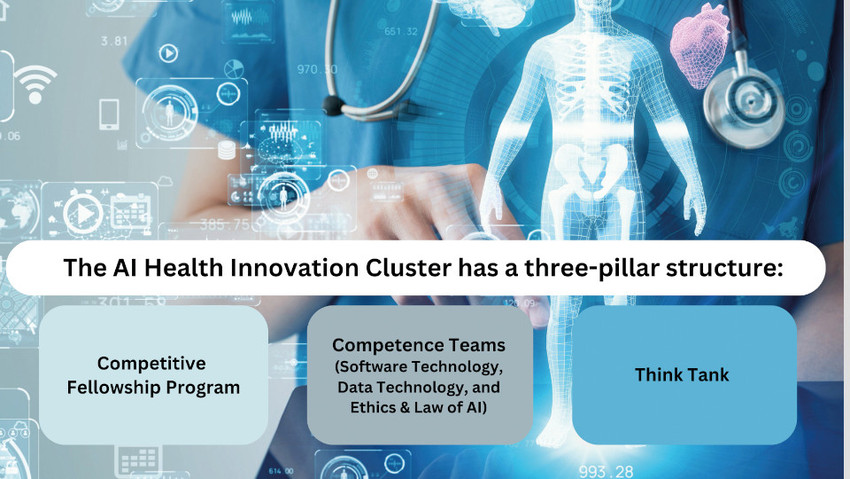At the interface of AI, healthcare, and data science
The German Cancer Research Center (DKFZ), the European Molecular Biology Laboratory (EMBL), Heidelberg University, Heidelberg University Hospital, University Hospital Mannheim, the Central Institute of Mental Health, and the Max Planck Institute for Medical Research join forces in the AI Health Innovation Cluster. The collaboration among these seven institutions is intended to generate sustainable synergies in the academic, medical, and health economic sectors and together become a stronger voice for the use of AI in health research.
Through a competitive fellowship program, the Cluster funds interdisciplinary projects that link data infrastructures, AI methods research, ethical-legal research issues, and clinical application fields across disciplines. The top criterion for the projects is scientific excellence.
Towards data-driven medicine
Two of the 67 projects to be funded evolve around early detection of sepsis, which is one of the leading causes of death and critical illness worldwide. In one project, hyperspectral imaging will be used for microcirculatory monitoring of patients in the intensive care unit based on a study that found a characteristic pattern of skin microcirculatory alterations in sepsis patients. The data collected will serve to evaluate the feasibility of early automated sepsis diagnosis with a novel machine learning algorithm. The second project, which involves two studies, is based on two advanced machine learning technologies – deep learning and multi-task learning. One study aims to develop a novel AI approach that will allow for forward predictions of individual patient trajectories and advanced identification of future tipping points in disease dynamics towards sepsis. The second study focuses on the development of a new multi-task learning approach to identify the risk of sepsis for polytrauma patients during hospital admission, as septic complications often occur in this patient group.
A long-term AI strategy
The funded projects, which synergistically link several partners and/or regional initiatives, are strategically accompanied by a cross-institutional and interdisciplinary think tank whose goal is the further development and continuous expansion of an AI strategy in health research for the Rhine-Neckar region while promoting international visibility. The tasks of the think tank include developing new objectives with particularly high chances of success for AI applications, integrating existing initiatives, transferring AI into clinical practice, and organizing the participation of industry and start-ups. To ensure a successful long-term concept, fellowship program and think tank are complemented by central competence teams for important core tasks that support the funded projects and activities and the overall strategy development.
Contact
Dr Daniela Beyer, Scientific Program Manager
daniela.beyer(at)dkfz-heidelberg.de
Jennifer Mogk, Communications Manager
jennifer.mogk(at)dkfz-heidelberg.de




